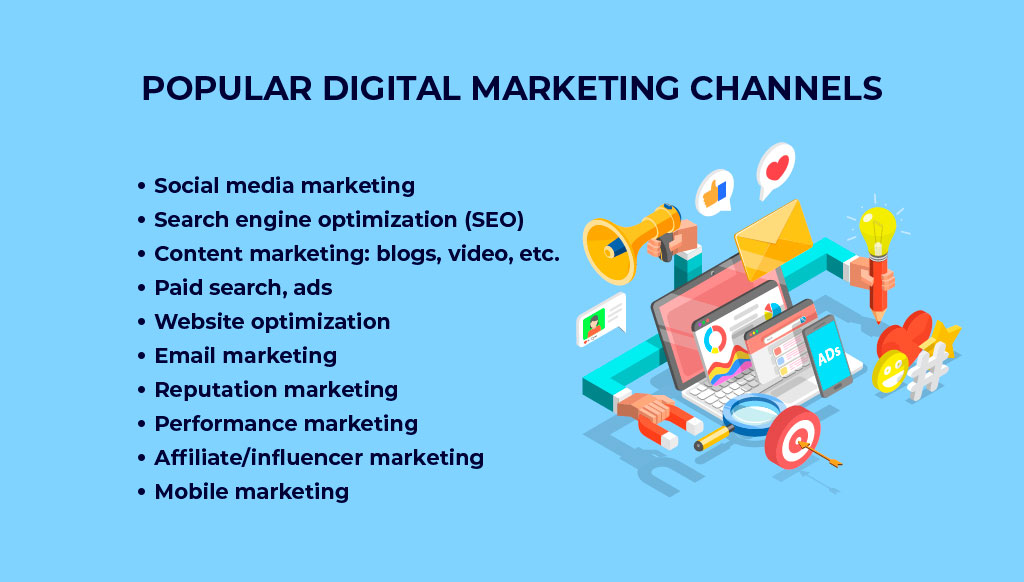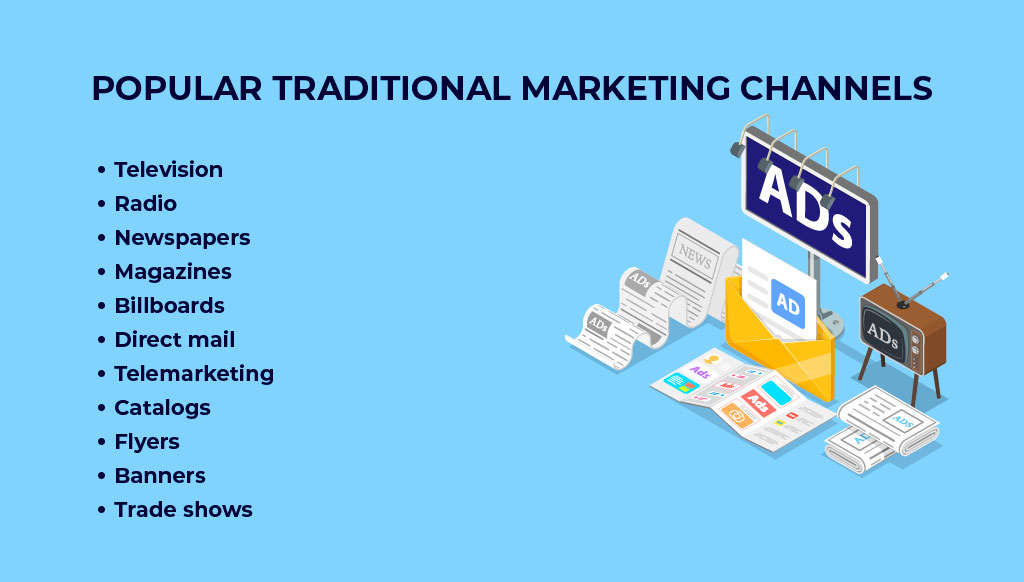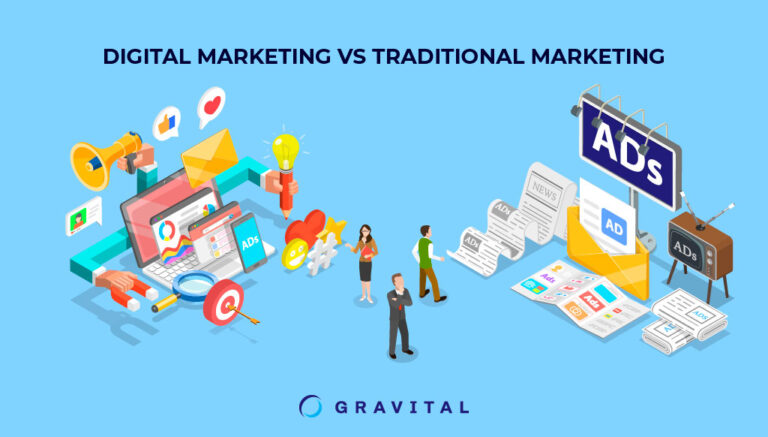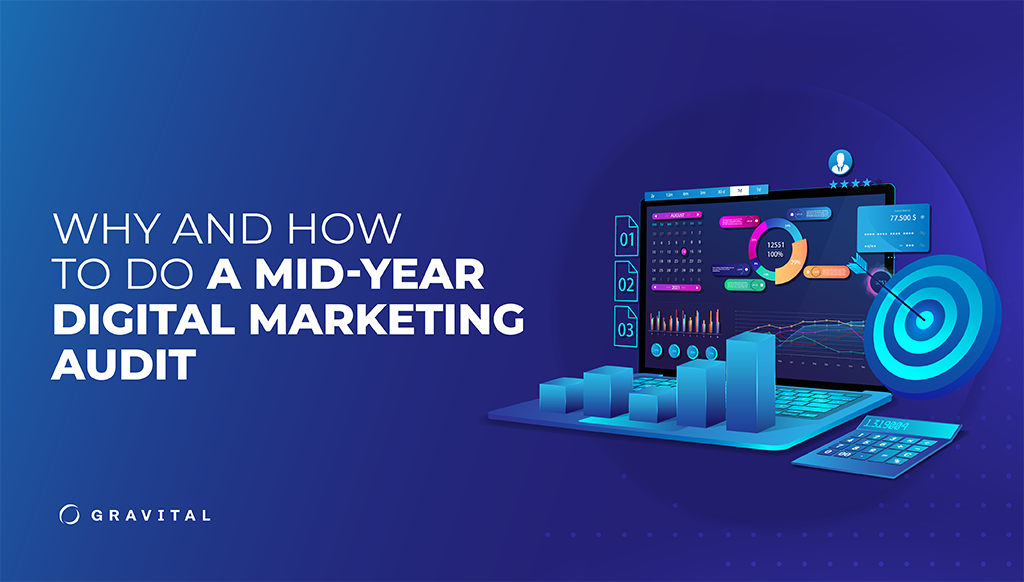In the Digital Age, you need digital marketing. Yet, traditional marketing still has a place in the marketplace, and it’s up to brands and their agencies to decide when to favor one over the other to achieve marketing and business goals.
Marketing is a fundamental element of business. You need to capture your current and prospective customers’ attention and persuade them to buy your products and/or services.
In the traditional versus digital marketing debate, several key differences between the two can help you determine what type of marketing will work better for your organization.
It’s a Digital World
The internet has more than 5 billion daily users, or over 63% of the world’s population (DataReportal). Of those, 4.74 billion are social media users–that’s 60% of the global population and 95% of all internet users.
Consumers use digital channels to stay in touch with family and friends, connect with brands, research and purchase products and services, stay up-to-date with current events, get weather and traffic information, manage their healthcare needs, plan weddings and vacations, and much more.
It’s no wonder that digital marketing has become essential for brands to reach customers, increase sales and grow. Consumers are online, and marketing is about connecting with them where they are. So you need to be online.
What is Digital Marketing?
Digital marketing uses digital channels to promote brands, products and services and connect with existing and potential customers.
Each day more consumers rely on digital technology and channels to learn about brands, products and services. They use text, email, social media, websites, video games, video conferencing, virtual assistants and aps for everything from streaming movies to deciding what to eat for lunch. They own smartphones, smartwatches, smart TVs, laptops, tablets, etc.
As digital technology evolves, so does digital marketing, so it can be difficult for individuals and organizations to keep up with digital marketing strategies, channels and media.


Types of Digital Media
There are three types of digital media:
1. Earned Media:
The publicity a company gets through word of mouth in the online environment. Organic search is an example of earned media.
2. Owned Media:
Digital media that a company holds and controls, such as websites, social media pages and online videos.
3. Paid Media:
External marketing efforts that involve paid placement. Google Ads and social media ads are examples of paid media.
Top 10 Advantages of Digital Marketing
Digital marketing provides numerous benefits that traditional marketing cannot offer. For example, companies can reach target audiences for free on many platforms, track consumer engagement and measure results. Below are digital marketing’s top advantages.
1. Precise Audience Targeting
Digital marketing allows you to reach your target audience or ideal buyers more precisely. You can define and segment them by age, gender, income, profession, location, interests, purchasing behavior, personal preferences and other demographics, and create content that gets their attention.
In traditional marketing, brands run ads in mass media that reach a local or regional audience hoping that the ads will land in front of the right audience. Targeted content that runs on digital platforms is more likely to reach potential buyers, engage them and convert them into loyal customers because it enables them to find your products and services when and where they need them.
2. Lower Cost
Digital marketing costs much less than traditional marketing. It’s also more cost effective than running ads on traditional media. Many digital marketing tactics, such as SEO and email marketing, can be implemented for free. Even online paid advertising, such as pay per click (PPC) is cheaper compared to conventional ads.
3. Greater ROI
Return on investment (ROI) is a high priority for brands and marketers. When done correctly, digital marketing generates a greater ROI than traditional marketing because it’s more cost effective. TV, radio and print ads typically are more expensive than most digital marketing strategies. With digital marketing you can accomplish more with less.
Digital marketing campaigns focus on precise target audiences and low-cost tactics that are more likely to reach and convert the right audience. Digital marketing also enables brands and marketers to measure the performance of these tactics, providing insight brands can use to increase the effectiveness and efficiency of their marketing efforts, thus increasing their ROI.
4. Measurable Results
When you place a billboard ad, for example, it’s impossible to determine how many ideal buyers will see it and how they will respond to it, and whatever information you do obtain can take weeks or months to gather.
Digital marketing allows brands to instantly access and track information–such as the number of visitors to a website, likes and shares on social media, and other metrics–and measure the effectiveness of their campaigns. With insights about what type of content and channels work best for their target audience, brands can adjust and improve their marketing efforts in real time and not after a campaign ends.
5. Higher Level of Customer Engagement
Unlike traditional marketing, digital marketing enables companies to have direct contact with their audiences through a variety of digital media, channels and content in order to engage them in a conversation, establish relationships, convert them into customers and build loyalty after that.
6. Personalization
Digital marketing allows brands to personalize their digital content and its delivery to fit the wants and needs of their target audience. Traditional marketing, on the other hand, sends out one-size-fits-all messages. For example, a radio ad cannot be personalized for different audiences, but an email or online ad can be optimized and personalized with offers that vary based on demographics, online behavior and other digital data.
7. Global Reach
Digital marketing offers a wider audience range than traditional marketing. With digital marketing you can reach audiences on a global scale. After all, with few exceptions (due to censorship), the internet has no boundaries. This advantage is especially useful to brands seeking to expand outside their local area.
8. Deeper Brand Connection
Websites and social media posts, for example, provide more space and time to communicate a brand’s message than any traditional media ad can provide. Digital marketing makes it possible for audiences to interact with brands instead of being passive spectators.
9. Immediate Publicity
With digital marketing, you can publish posts, ads and other content whenever you want and track audience engagement in real time. You can know the moment a user visits your website, likes your Tweet, comments on your Facebook post or watches your YouTube video. The same cannot be said about traditional marketing methods.
10. Easily Shareable
Most digital marketing channels feature sharing capabilities that allow digital content to be shared with countless followers in multiple channels, sometimes going viral. This helps to create an amplifying effect that can boost brand awareness and directly impact sales.
Limitations of Digital Marketing
There are very few disadvantages to digital marketing. An obvious one is that it depends on technology that may malfunction. Even Google and Facebook’s platforms go down sometimes. Privacy and security concerns can be an obstacle when trying to reach and interact with older audiences.
What is Traditional Marketing?
Traditional marketing refers to conventional marketing methods that do not use digital channels or the internet to promote brands, products and services. This type of marketing has been around for decades, well, centuries, even millennia.
Since the advent of the internet, traditional marketing has lost ground to digital marketing. However, it’s still effective in reaching massive segments of audiences who are still spending a significant amount of time shopping offline and consuming content published via traditional media channels.


Traditional Marketing Pros and Cons
While traditional marketing methods are often viewed as outdated, they’re still useful today. Whether or not traditional marketing can work for your brand depends on your type of business, industry and goals.
Pros
- It appeals to an older population who has old-school values and shopping habits.
- It’s useful for brands that need to reach local audiences.
- It’s easy to implement–no digital learning curve–and traditional media doesn’t change as often as digital technology does.
- It’s an effective way to create top-of-mind awareness.
- It has a proven success rate; otherwise, brands wouldn’t pay millions of dollars for 30-second ads during the Super Bowl.
Cons
- It’s expensive.
- It cannot be targeted as precisely as digital marketing.
- It does not allow interaction with consumers.
- It does not provide real-time information.
- It’s less flexible: campaigns cannot be adjusted once they’re running.
- Results cannot be tracked or measured as with digital marketing.
Digital Marketing vs. Traditional Marketing
We believe, and many agree, that digital marketing has the edge on traditional marketing.
- Digital marketing offers superior features, such as precise targeting, flexibility, personalization, real-time data and measurable results.
- Traditional marketing delivers one-way communication, while digital marketing facilitates two-way communication between brands and consumers.
- Traditional marketing is more expensive and less effective, while digital marketing is more effective and less expensive.
Final Word
When considering which marketing strategy is best for your business, you should start by clearly defining your target audience, identify what type of content they favor, determine where they get their information and what type of content and marketing channels they prefer.
To make the most out of digital marketing, consider working with an experienced agency that can help you create and run strategic digital marketing campaigns capable of targeting, reaching, engaging and converting your ideal buyers. For more information about Gravital’s digital marketing services, contact us today.


